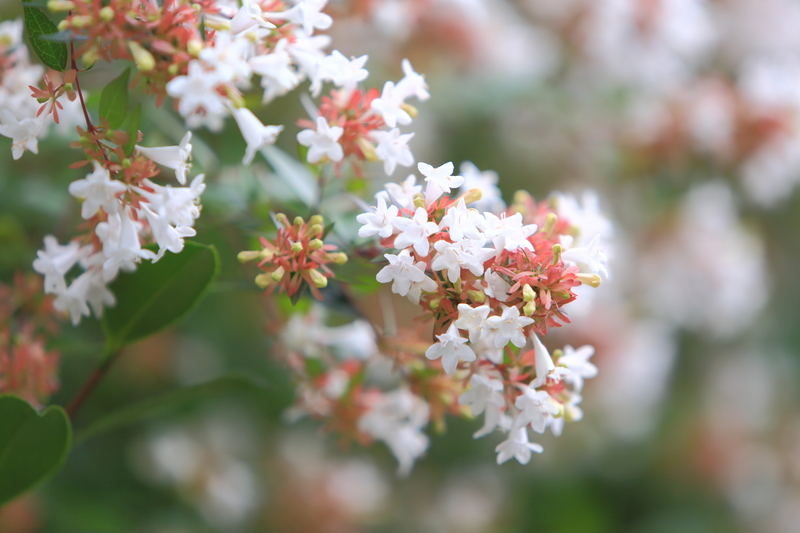Empower Your Landscaping with 3 Foolproof Weed Tips
Posted on 23/09/2025
Empower Your Landscaping with 3 Foolproof Weed Tips
Is your picturesque garden constantly under the threat of persistent weeds? Even seasoned landscapers struggle to maintain pristine flowerbeds and lush lawns as unwelcome invaders thrive. Whether you're a homeowner with a green thumb or a landscaping professional, controlling weeds is essential for a thriving landscape. But how can you effectively keep weeds at bay without endless hours of pulling or harmful chemicals?
In this comprehensive, SEO-optimized guide, you'll discover the ultimate weed control tips to power up your landscaping. Learn three foolproof strategies, understand the science behind each, and find actionable advice that transforms your outdoor space into a weed-free haven. Start empowering your landscape today with these proven solutions!

Why Effective Weed Control Matters
Before diving into these foolproof weed management tips, it's vital to understand why controlling weeds is so important. Weeds aren't merely unsightly - they compete with your treasured plants for nutrients, water, and sunlight. Some weeds even harbor pests and diseases that can decimate your landscape.
- Reduce competition: Weeds consume resources that your desired plants need to flourish.
- Enhance curb appeal: A weed-free lawn or garden dramatically boosts aesthetic value.
- Prevent pest infestation: Certain weeds attract insects and rodents.
- Improve plant health: With fewer weeds, your lawn or garden enjoys better air circulation and less risk of disease.
Now, let's explore the top three foolproof weed tips that will empower your landscaping and keep unwanted plants from taking over your precious green spaces.
1. Mulch: Your First Line of Defense Against Weeds
One of the most effective--and eco-friendly--methods of weed prevention is the strategic use of mulch. If you've ever wondered how professional landscapers keep gardens so pristine, the answer often lies in high-quality mulch. But how does mulch empower your landscaping to suppress weeds?
How Mulch Stops Weeds in Their Tracks
- Blocks sunlight: Mulch acts as a barrier, preventing sunlight from reaching weed seeds. Without light, most weeds can't germinate or survive.
- Retains soil moisture: By keeping the soil moist, mulch helps your desirable plants outcompete weeds.
- Insulates temperature: Mulch keeps soil temperatures consistent, discouraging weed growth cycles.
- Improves soil health: Organic mulches (like bark, wood chips, or straw) break down over time, enriching the soil and giving your landscape a vibrant boost.
Choosing the Right Mulch
Empowering your landscaping with mulch begins with selecting the right type. Here are a few popular options:
- Organic mulches: Bark, compost, straw, or leaf litter. These materials decompose, adding nutrients back to the soil. They're excellent for flowerbeds and vegetable gardens.
- Inorganic mulches: Gravel, stones, or landscape fabrics. While they don't improve soil, they can be ideal for paths or rock gardens where long-term weed suppression is a must.
Best Practices for Mulching
- Apply a 2- to 4-inch layer of mulch around plants, being careful not to pile it against stems or trunks, which can foster rot.
- Refresh mulch annually to maintain its weed-blocking power.
- For persistent areas, consider placing a layer of landscape fabric beneath the mulch for extra protection.
With the right mulch, you'll empower your landscaping to fend off weeds with less effort.
2. Smart Planting: Densely Plant Beds and Borders
Did you know that the way you plant your landscape can make it nearly impossible for weeds to invade? Densely planted areas deprive weeds of the space and light they need to thrive.
Understanding the Power of Dense Planting
- Shades soil: A thick planting canopy prevents sunlight from reaching weed seeds below.
- Utilizes resources: Closely spaced plants use up available water and nutrients, leaving little for weeds.
- Reduces open ground: Bare soil is an open invitation for weeds to settle. Fill those gaps and you'll significantly reduce weeding chores.
How to Implement Dense Planting for Weed Control
- Choose spreading groundcovers: Plants like creeping thyme, sedum, or vinca quickly blanket the soil.
- Interplant annuals and perennials: Mix low-growing annuals amongst shrubs or perennials to fill gaps.
- Stagger heights: Use taller plants behind and shorter varieties in front to maximize coverage.
- Add new plants each season: Over time, as your garden matures, you'll notice fewer weeds emerge.
Empower your landscaping with the simple habit of dense planting, and watch your weed population dwindle year after year!
3. Consistent Maintenance: The Key to Long-Term Weed Control
While mulching and planting strategies are critical, nothing beats regular, vigilant maintenance for foolproof weed control. Applying preventative measures is powerful, but a weed will occasionally sneak through. Empowering your landscaping requires a routine approach to weed management.
Best Maintenance Habits for a Weed-Free Landscape
- Hand-pull weeds early: Catch weeds when they're young and before they set seed. Early removal is much easier and prevents spread.
- Use sharp tools: Invest in a quality hoe or weeding tool for larger areas. Well-maintained tools make the job faster and less strenuous.
- Monitor after rain: Weeds are easiest to pull from moist soil--right after a rain or irrigation is the best time.
- Dispose of weeds properly: Avoid tossing weeds in compost if they've already flowered or formed seeds; otherwise, you might inadvertently reintroduce weed seeds later.
Proactive Strategies for Empowering Your Landscape
- Inspect regularly: Schedule a quick walk-through of your garden at least once a week during growing season.
- Spot treat with eco-friendly solutions: For persistent patches, non-toxic sprays (like vinegar or boiling water) can kill unwanted plants without harming your valued garden.
- Edge beds and borders: Defining edges with physical barriers (like metal, plastic, or stone) can prevent grasses and weeds from creeping in.
Staying consistent makes these simple habits second nature, making your landscape ever more resistant to weed invasions.
Bonus: Eco-Friendly Approaches to Empower Weed Control
Modern landscaping increasingly favors sustainable practices. If you strive for empowered weed management but wish to avoid synthetic chemicals, consider these earth-friendly alternatives:
- Smother with newspapers or cardboard: Lay sheets beneath mulch or compost for an additional light-blocking barrier that eventually breaks down naturally.
- Boiling water or vinegar: Pour directly onto weeds (being cautious around valued plants) for a natural kill.
- Solarization: Cover soil with clear plastic in sunny weather for several weeks, baking weed seeds before planting beds anew.
These approaches, combined with our three essential tips, will empower your landscape without sacrificing environmental responsibility.
Common Types of Weeds to Watch Out For
Empowering your landscaping starts with knowing your adversaries. Here are some of the most notorious weed types likely to target your garden:
- Dandelions: With deep taproots and prolific seeds, they can quickly spread across lawns and beds.
- Crabgrass: A persistent grassy weed, especially aggressive in lawns with bare patches.
- Bindweed: Vining plants that choke other vegetation and are tough to eradicate.
- Clover: While some see it as beneficial, clover can outcompete turfgrasses if left unchecked.
- Chickweed: A low-to-the-ground invader, thriving in cool, moist conditions.
Early identification is key--spot and address these weeds promptly for the best results.
Top Mistakes to Avoid in Weed Control
Even with the right strategies, common missteps can give weeds a foothold. Avoid these errors:
- Ignoring weeds until they flower: Allowing weeds to set seed multiplies your future workload.
- Piling mulch too thick: While a good mulch layer is crucial, excessive mulch suffocates roots and invites rot.
- Leaving bare soil exposed: Gaps between plants invite weed seeds to settle.
- Using poor-quality soil or compost: Unscreened compost can introduce new weed seeds, undermining your efforts.
By steering clear of these pitfalls, you'll maximize the effectiveness of your weed-control efforts and maintain truly empowered landscaping.

Frequently Asked Questions About Empowered Weed Control
Can I use landscape fabric as my only weed barrier?
Landscape fabric can help, especially under pathways or hardscapes, but it works best when combined with mulch or dense plantings. Over time, soil and debris on top can still allow new weeds to grow.
Which mulch works best for weed suppression?
Organic mulches (like bark or wood chips) work well in garden beds, while gravel is excellent for pathways. A 2-4 inch layer is ideal for most applications.
Is it safe to use vinegar for weed control?
Household vinegar can kill small weeds when applied directly to leaves, but caution is necessary to avoid contact with desirable plants. It is best for spot treatments.
How often should I check for weeds?
Inspect your beds, borders, and lawns weekly during the growing season for the best results. Regular maintenance prevents small problems from becoming overwhelming infestations.
Conclusion: Empower Your Landscaping--Starting Today!
Weeds don't stand a chance when armed with the right knowledge and strategy. By implementing these three foolproof weed tips--quality mulching, dense planting, and consistent maintenance--you take control of your landscape's health, beauty, and long-term vitality.
- Mulch smartly to starve weeds of light and moisture.
- Fill gaps with dense, layered plants to crowd out invaders naturally.
- Stay diligent with routine upkeep to catch and eliminate weeds before they set seed.
Combine these core strategies with earth-friendly alternatives, and you'll empower your landscaping for seasons of enjoyment and pride. Take action today--because the best landscapes are those we nurture, protect, and weed-proof with wisdom!
Ready to transform your garden? Empower your landscaping with these foolproof weed tips and enjoy a flourishing, weed-free outdoor oasis!

